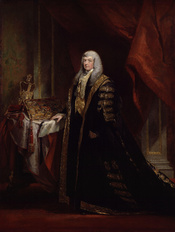The Judiciary and Civil Liberties
Assignment 3:
To what extent are judges politically neutral?
In theory there should be no 'political' role for judges, but in practice there is. Ministers and their departments can break the law, MPs can be charged with breaking laws about election expenses and civil servants can be charged with handing over secrets about their political 'bosses'. A member of the judiciary has to decide whether they will be charged and, if so, what they will be charged with, and also has to preside over the trial and death with sentencing if they are found guilty.
Judges' decisions can make life easy or difficult for ministers, Mps and civil servants, so in this respect their decisions are bound to be 'political'. One example was when the Thatcher government tried to ban key civil servants working at GCHQ, the top-secret government communications centre, from joining a trade union.
It was a judge who had to rule whether the government had the power to take away this 'right.'
Judicial independence and neutrality is an important theory - that all judges must be independent from any outside pressures, such as from a political party or cabinet minister. They may well have to sit in judgment on a politician or minister, so it is important to the political system that judges are not dependent on politicians or ministers for pay, promotion or keeping their job. Judges' decisions should be made without any fear of reprisal, however unpopular these decisions might be with a government or a political party.
There are concerns that the most senior judge - the lord chancellor - is essentially a party politician and a member of the executive as well as the legislature (in this case the House of Lords. Inevitably, there is fear that appointments...



Judges
"I hereby swear to tell the truth, the whole truth, and nothing but the truth so help me God"
This essay is very average. It doesn't really seem to answer the question fully, it still leaves questions. It also lists examples that are hard to relate to and they don't capture the reader's attention. It would have been better like Pixel_for_life has commented to have included perspectives from different classes...would have made it better. I am giving this essay 68% and it therefore gets a straight face from me. More research was needed.
8 out of 8 people found this comment useful.